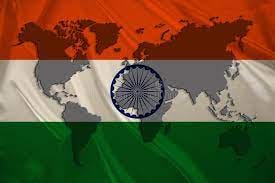An emotive discussion on a Tuesday morning, over a forwarded poem on little birds in a family WhatsApp group, goaded me to pen my views on this slightly sensitive topic. I believe it may find resonance across many Indians including the global Indian diaspora.
The poem talks about how the little sparrows leave their nests to create their own future while their family members lead a life in despair yearning for their return. The sparrows, the poem contends, have left their nest for greener pastures and greenbacks. Sparrows, in this case, are an obvious metaphor for the Indian citizen who moved overseas in search of better opportunities and build his or her career. The poem was responded to by an equally strong and emotive poem sharing the other side of the story.
This scenario is the result of what I would like to call the ‘Chitthi Aayi Hai’ effect on the Pankaj Udhas generation which still reverberates with many Indians irrespective of their location.
‘Chitthi Aayi Hai’ is a beautiful ghazal from an 80’s Bollywood film ‘Naam’. Call it serendipity or whatever, just the previous night of this WhatsApp exchange, I was in my bed, listening to the very same ghazal sung by Pankaj Udhas.
The song which was no doubt beautifully written by Anand Bakshi and rendered with a strong emotive voice by Pankaj Udhas echoes this sentiment in ways that one cannot imagine. The connect of this song is so strong that whenever Indians listen to this song it still leaves many eyes moist. The song however has caused amplification and exaggeration of this family separation effect to a large section of Indian population. So much so, that most people who do not find them in a similar situation feel a deep sense of empathy towards it.
This powerful song has resulted in one side going on a guilt trip of having left the loved ones in search for better prospects while exacerbating a feeling of helplessness on the other side. I believe these are multiple realities where each looks at the scenario from his or her own perspective. However, this song unfairly paints the Indian diaspora in a not-so-positive light and evokes strong emotions even today, more than three decades after the song was first sung. Lines like ‘apne ghar main bhi hai roti’ add a slightly negative connotation towards the choice made by the global Indian.
This is, in my opinion, a simpler representation of a very complex and delicate context and necessitates a more nuanced viewpoint. While some Indians of the earlier generation have mixed feelings about those who have left their motherland, others take great pride in the achievements of global Indians which is amongst the largest diaspora in the world. They seek to identify with the many high-profile Indians holding leadership positions and those who are at the forefront of technological & scientific innovations across top international organisations.
It is the soft power and the strong image of Indians as well educated, smart, tech-savvy, honest, hardworking & law-abiding citizens that is extremely powerful and cannot be overemphasized.
Coming back to the sparrows, if we look around, nature shows us that if a young bird comes of age, parents push them out from the comfort of their nests to find wind beneath their wings and soar high into the sky.
Let us look at the global Indian in the right context and appreciate their contribution.



Yes India has to still go a long way